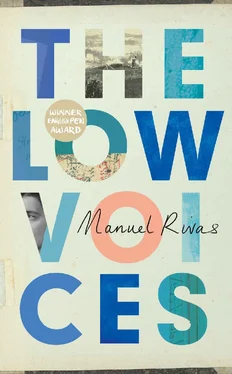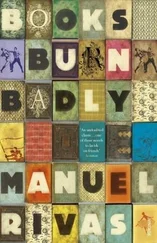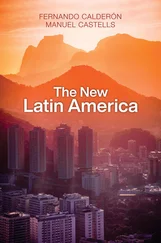Manuel Rivas - The Low Voices
Здесь есть возможность читать онлайн «Manuel Rivas - The Low Voices» весь текст электронной книги совершенно бесплатно (целиком полную версию без сокращений). В некоторых случаях можно слушать аудио, скачать через торрент в формате fb2 и присутствует краткое содержание. Год выпуска: 2016, Издательство: Harvill Secker, Жанр: Современная проза, на английском языке. Описание произведения, (предисловие) а так же отзывы посетителей доступны на портале библиотеки ЛибКат.
- Название:The Low Voices
- Автор:
- Издательство:Harvill Secker
- Жанр:
- Год:2016
- ISBN:нет данных
- Рейтинг книги:5 / 5. Голосов: 1
-
Избранное:Добавить в избранное
- Отзывы:
-
Ваша оценка:
- 100
- 1
- 2
- 3
- 4
- 5
The Low Voices: краткое содержание, описание и аннотация
Предлагаем к чтению аннотацию, описание, краткое содержание или предисловие (зависит от того, что написал сам автор книги «The Low Voices»). Если вы не нашли необходимую информацию о книге — напишите в комментариях, мы постараемся отыскать её.
A brilliant coming-of-age novel from one of Spain’s greatest storytellers,
is a humorous and philosophical take on memory, belonging, and the nature of storytelling itself.
The Low Voices — читать онлайн бесплатно полную книгу (весь текст) целиком
Ниже представлен текст книги, разбитый по страницам. Система сохранения места последней прочитанной страницы, позволяет с удобством читать онлайн бесплатно книгу «The Low Voices», без необходимости каждый раз заново искать на чём Вы остановились. Поставьте закладку, и сможете в любой момент перейти на страницу, на которой закончили чтение.
Интервал:
Закладка:

Washerwomen by the Laranxeiro river
Is that the undergrowth opening? Who’s coming along the path now? It’s another cyclist. This one is riding his bike. He’s certainly pedalling. His name is Maxi. He has a large roll on his back, and a brush with a handle, a kind of strange mast. Hanging on the handlebars is a bucket. He’s bringing the cinema posters. The closest ones to us are Portazgo Cinema in Burgo Estuary and Monelos Cinema at the city gates. He’s going to stick them to the billboard that hangs on the large wall of the Cardama estate, with its palm tree where all the sparrows from Elviña Valley congregate once a day. I always stop to have a look at the cinema posters and the palm tree. Only when the starlings arrive is it possible to see so many birds together. The palm tree tweets, chirps, chatters, warbles. It must be going mad with so many birds on its head.
Who’s that descending the path on a motorbike? In a helmet, he looks as if he’s concentrating hard, his body in a dynamic posture, close to the machine. It’s Rafael the cobbler. When he gets off, you can see he’s short and has a hump. This is not exactly the place to start, but he doesn’t mind, he spreads luck wherever he goes, all you have to do is see him. Some people are even jealous. What wouldn’t they give to have a hump like the cobbler’s! I like to take our family’s shoes to be repaired in his workshop in Elviña on a Saturday afternoon. Every Saturday afternoon, if at all possible. The workshop is small. You arrive, sit down on a stool. He is opposite, behind his worktable, in his leather apron. His head is big, enormous, with an impish grin. The whole ceiling is covered in images of naked or almost naked bodies, photos, calendars, posters, cut-outs from foreign magazines: a cosmopolitan collage, an infinite and fertile erotic landscape.
‘You can come back for the shoes later.’
‘No, no. I prefer to wait.’
My eyes always gravitate towards the same model, the same calendar. He follows the direction of my gaze.
‘She never gets a year older!’
I am about to reach the curve in the road that leads from Elviña to Castro. After a long straight stretch, there’s an abrupt ninety-degree turn. There were days the wind, coming back from school, wouldn’t let us walk. We played with it, and it had fun. Clinging to each other’s arms, we stood against it, and the wind pushed us back, as they say master stonemasons do to move stones by pushing them with their fingertips. A touch more, and we’d take to the air like kites. Where are the Castro children? The wind has taken them! That bend in the road was the best place to keep an eye on the track to A Cavaxe. It must have been a little windy because the undergrowth swayed when the path opened to make way for the Unforgettable. Out of the vegetal tunnel emerged Blondie of Vilarrodrís in her captain’s uniform.
We’d seen the odd match on Shrove Tuesday between single and married ladies, all of them local. They would play on a pitch next to the Avenue that belonged to the bar Parada, which was where the Cockroach and other buses stopped. It was such a modest, stony pitch that all teams gave themselves a chance of winning. Lightning Football Club then built a new stadium, complete with changing rooms, and at carnival it was decided to celebrate this fact with an international match. Here comes Blondie with her team from the adjoining parish, Arteixo.
Running across country, for miles, in a football shirt and shorts. All of this, as the poet Manuel María wrote, in those ‘incestuous times’. At the front, like a model in a Pirelli calendar, like an optical revolution in that era of textile mourning, was Blondie of Vilarrodrís. She had emigrated and, on her return, opened a bar called Odette. She wore her hair in the flapper style and bore a certain resemblance to Brigitte Bardot. Not that the two needed comparing. Blondie of Vilarrodrís was there. She was real. So much so that she’d just jumped through the bracken in order to pass from the invisible to the visible along the track to A Cavaxe. Now, on the football pitch, she demonstrated her silky skills. And, something that was a little more complicated, she graciously turned to face the roaring crowd, which had come from all around and was emitting arias di bravura every time the girls of Elviña, Castro and Vilarrodrís touched the sphere of the world.
On Shrove Tuesday, there was always someone to block the streams so the rivers would dry up and the washerwomen wouldn’t have to go to work and could come and play, or at least watch, those games that marked a turning point in women’s football. The carnival mandate was fulfilled: it was necessary to turn the world upside down!
What happened during the rest of the year was the exact opposite. The washerwomen of Castro de Elviña carried the sphere on top of their heads. They washed for upper-class families in A Coruña or for clinics, hotels, restaurants. They came and went with enormous loads balanced on a crown or pad, most of the time on foot, sometimes with a donkey. In the caravan, there were also women who sold fresh produce in the city squares. It was noticeable, the way they carried their merchandise. A form of aesthetics developed by the imagination of necessity. An earthen algebra: the positioning kept the fruit alive. It was possible to meet the fishwife along the track. Almost always, whenever she got to our house, all she had left was horse mackerel. I hated them. Children simply don’t like fish bones, and that’s all there is to it. But there was one day the fishwife, coming up the hill, struck me as the most extraordinary creature in existence. She was carrying a basket full of sea urchins.
Women came and went with weights on top of their heads in order to have their hands free to carry other heavy things or the weight of a child. Everything they carried was necessary. Essential. Provisions, water, milk, wood. Clothes. Some washerwomen’s hands were worn down by soda. Their backbones, because of the weights they carried, looked like inverted pyramids. It was amphibian work, always in contact with water, with a damp stone, feeling the cold. Talking of visions on the road, I once saw the washerwomen of Castro with the sphere of the world on their heads. What happened every Shrove Tuesday was that they and other workers would kick the male’s planetary ball around. Their shrieks of laughter resound in the empty stadiums, race over the grass, like a triumph of humanity.
12. Drinking the Rainbow
THE CITY KNEW little or nothing about Castro. Those from Castro, apart from knowing about the city, had a universe of their own. A gift of knowledge. Atmospheric, for example. From when we were children, we received a thorough meteorological education. In modern times, they stuck the university in that area, but there already existed a popular School of Winds, Storms and Clouds. One of the first things my new friends in Castro taught me was how to catch a rainbow with my hands. There were puddles where the rainbow would place its artistic desire with oily density. You could feel the spectrum of all the colours of the cosmos in your hands. Lift them to your mouth. Lick, taste, drink the rainbow.
It was no accident that the football team, founded when people stole the ball from the elites and discovered how to play in the mud, should be given and still bears the name Elviña Lightning. Seen from Castro, the bolts of lightning were nightmares from the open sea: sudden, fierce, incandescent forests that seized the celestial void with anxiety and rage. There was a wonderful rock from which to watch the natural cinema of lightning. The Cuckoo’s Crag, near our house, on the way to O Escorial. The cuckoo was large, sculpted by the weather’s imagination in the free workshop of the elements. Any sculptor would have immediately gone down in history for a work like that. It looked like a bird, with its stone wings, its golden-green lichen eyes and its beak pointing towards the city, in axial connection with the Tower of Hercules-Breogán.
Читать дальшеИнтервал:
Закладка:
Похожие книги на «The Low Voices»
Представляем Вашему вниманию похожие книги на «The Low Voices» списком для выбора. Мы отобрали схожую по названию и смыслу литературу в надежде предоставить читателям больше вариантов отыскать новые, интересные, ещё непрочитанные произведения.
Обсуждение, отзывы о книге «The Low Voices» и просто собственные мнения читателей. Оставьте ваши комментарии, напишите, что Вы думаете о произведении, его смысле или главных героях. Укажите что конкретно понравилось, а что нет, и почему Вы так считаете.












